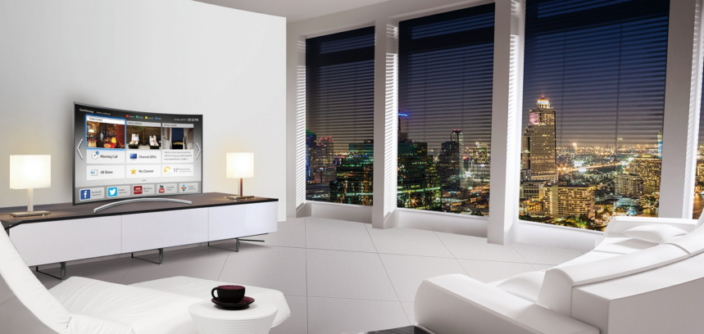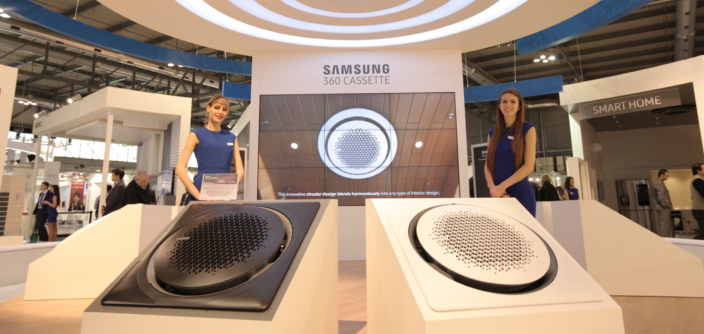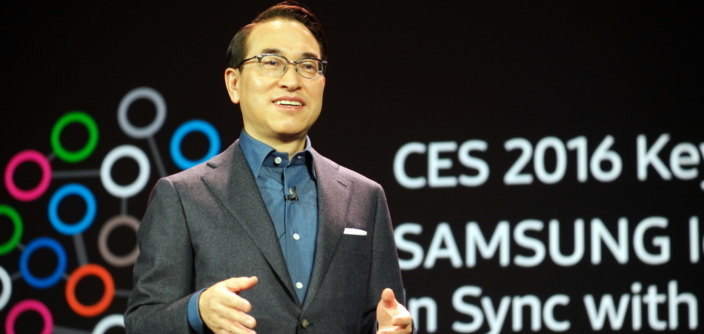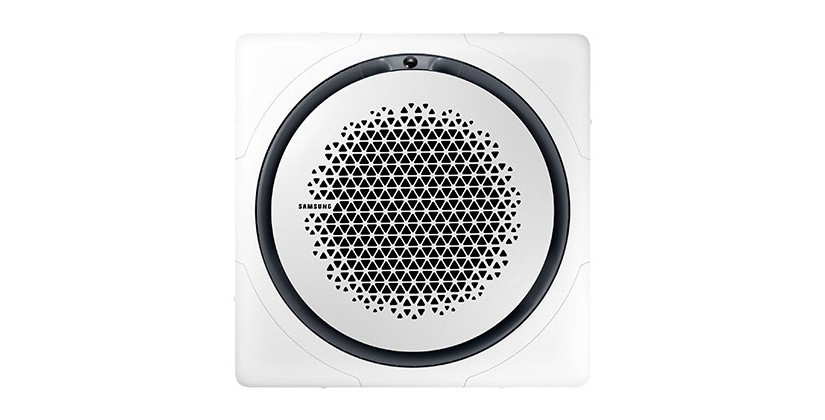How Samsung Makes Buildings More Intelligent
on March 22, 2016
With Internet of Things (IoT) technology expanding beyond the home to all types of buildings, Samsung Electronics is at the forefront of creating a new type of “smart building.” As part of this transformation, Samsung is planning to release its Smart Vertical Solution (SVS) system this year, which focuses on improving buildings’ HVAC (Heating, Ventilation, and Air Conditioning) systems.
Why Smart Buildings?
HVAC and lighting facilities generally account for about 70 percent of the total power consumption in a building. And much of that is because of the centralized HVAC systems, which can only turn on and off for the entire building. This is where Samsung’s Variable Refrigerant Flow (VRF) air-conditioning (AC) products and SVS can step in, turning conventional buildings into intelligent ones, cutting down on energy waste and making our lives more convenient.
Samsung plans on concentrating supplying VRF and SVS systems to five major types of buildings, including offices, retail shops, hotels, campus buildings and residences. Once installed, the SVS analyzes and controls the HVAC system, lights, power supply and machinery in a building to maximize energy efficiency.
The SVS also allows large coffee and fast-food franchises to remotely monitor the HVAC environment in all their independent shops, setting the temperature or turning the lights on and off at their discretion, depending on the season or opening hours of each shop. Should trouble occur in the HVAC system at any shop, the SVS can immediately detect it and allow the user to take responsive measures.
For hotels, the SVS gives guests convenient access to HVAC, lighting, and door-lock controls through the smart TV in their room. This solution also provides the hotel staff an easy way to check the empty rooms, which can save up to 30 percent on energy usage.
Making Smart Buildings a Reality
The smart building is not a concept for the distant future. Samsung has already engaged in collaborations with global hotel chains and franchises, and is conducting on-site tests and inspections to ensure its SVS system will soon be fully functional.
Samsung is also preparing to implement smart facility management for large-scale stadiums and other buildings. The company has signed a contract to supply a customizable HVAC system based on VRF technology with smart facility management for the Brussels Eurostadium, which is now under construction and is scheduled to host several matches in UEFA Euro 2020.
In addition, Samsung is looking to use IoT-based solutions to create smart super-large buildings. The company is applying smart-building solutions to the Warsaw Spire, a 220-meter-high skyscraper due to be completed in 2016. The building will be a next-generation smart building, offering occupants the latest and best conveniences while saving energy through the intelligent analysis of machinery operations and power consumption, as well as the HVAC system and lighting.
Maximizing Synergies Within Samsung
The smart HVAC system works for organic, flexible structures that are fully networked throughout the building’s lighting and electronics—including TVs, mobile devices and computers—to form an intelligent control system. As Samsung has a comprehensive ICT business portfolio that includes HVAC solutions, TVs and digital appliances, mobile devices, network systems and semi-conductors, the company is putting maximum efforts into bringing together its diverse lineup and deep knowledge across a range of electronics to take the lead in the evolution of HVAC systems.
For example, Samsung is supplying Hospitality Management Solution (HMS), offering TV sets and HVAC solutions in a package to gain a larger presence in the hotel market—which is also one of the main targets of the SVS. Because HMS easily turns the typical hotel room into a smart one, it is gaining much popularity among global hotel chains. As Samsung is also the world leader in TV sales to hotels and in commercial displays, the potential for additional synergies with smart HVAC systems is seen in the years ahead.

An employee introduces Samsung’s Integrated Facility Controls at MCE (Mostra Convegno Expocomfort) 2016.
The Warsaw Spire is another example of Samsung bringing together the R&D capabilities of its different businesses to create an intelligent building. Samsung’s project team is developing a smart building platform which connects everything in a building with IoT technology, and the Warsaw Spire will be the first showcase embracing Samsung’s new platform.
“Conventional HVAC systems, which have lasted for several decades, will completely transform into intelligent ones through IoT technology from this year,” said Brian S. Kim, Director of Digital Appliances Business at Samsung Electronics. “Combining our innovative products and IoT capacity, Samsung will take the lead in making buildings more intelligent with a variety of tools, including the new SVS and smart building platform.”








